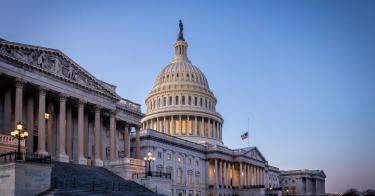Abused and overworked, the Commerce Clause in Article I of the U.S. Constitution authorizes Congress to regulate commerce “with foreign nations the Indian Tribes [and] among the several states.”
Today, Congress and the courts treat those provisions as though they are limitless. The result: worrisome encroachments upon state sovereignty and individual liberty.
Consider three cases that the Supreme Court declined to review in its October 2017 term: Damion St. Patrick Baston v. United States, Upstate Citizens v. United States, and PETPO v. U.S. Fish & Wildlife Service.
According to the lower court in Baston, the federal government not only regulates international relations and trade, it’s the world’s vice squad. The case involved a Jamaican citizen who had been convicted of sex trafficking for running an international prostitution ring. The question was whether a U.S. court could order him to pay restitution to a victim over money she had earned as a prostitute in Australia and given to him.
The appellate court accepted the government’s argument that foreign prostitution so substantially affects commerce between the U.S. and other countries that the restitution order was constitutional.
In a lone dissent from the Supreme Court’s refusal to hear the case, Justice Clarence Thomas noted that, by that reasoning, Congress could regulate virtually any activity, anywhere, including “working conditions in factories in China, pollution from power plants in India, or agricultural methods on farms in France.”
“Whatever the correct interpretation of the foreign commerce power may be,” Justice Thomas wrote, “it does not confer upon Congress a virtually plenary power over global economic activity.”
Justice Thomas was right. But the debate goes on.
Does Congress have plenary power under the Indian Commerce Clause?
In the Upstate Citizens case, several New Yorkers, one civic group, and two towns argued that the Clause did not permit the Secretary of the Interior to transfer 13,000 acres of land to the Oneida Indian Nation.
The plaintiffs lost.
Once again, Justice Thomas dissented from the Court’s decision not to hear the case. He observed that the Founders understood this clause “to give Congress the limited authority ‘to regulate trade with Indian tribes living beyond state borders,’” not “the power to take any state land and strip the State of almost all sovereign power over it.”
This land grab does “not resemble ‘trade with Indians,’” Justice Thomas added, but “Congress, the Executive, and the lower courts stray further and further from the Constitution.”
In PETPO, Uncle Sam strayed even further.
More than 200 Utahans argued that Congress’s authority to regulate commerce “among the several states” cannot justify federal protections for the Utah prairie dog — an invasive rodent that lives in only one part of Utah. They observed that the animal serves no economic purpose; jeopardizes public health; blocks construction projects; and damages private property.
All the while, a heavy-handed federal regulation against harming the rodents and their habitat forced residents to sit by and watch.
The district court agreed with the landowners, allowing Utah to create its own policies, but the appellate court later ruled for the government, reinstating the federal law. The Supreme Court declined to hear the case.
But in the interim, Utah’s conservation policies proved so successful — both at protecting property rights and increasing the prairie dog population — that federal regulators have proposed reinstating Utah’s policies.
The Supreme Court has not always let Congress meddle in local affairs under the guise of regulating commerce.
In United States v. Lopez (1995) and United States v. Morrison (2000), the Court reasoned that the Commerce Clause does not reach purely local, non-economic activity.
In Lopez, the Court reaffirmed “a distinction between what is truly national and what is truly local.”
One needs only read those cases to see how far the federal government has exceeded its constitutional authority. For now, those cases remind us why judges who enforce limits on government power are so important to the vitality of our constitutional framework.
This piece originally appeared in The Washington Times



